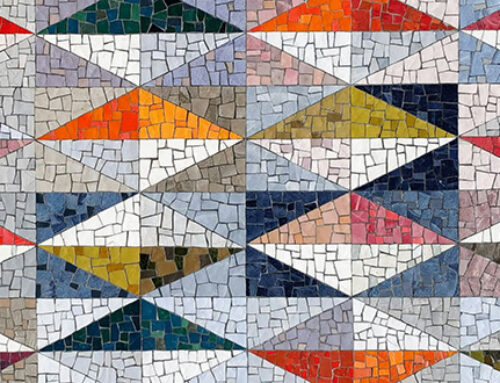Through the eyes of Christ
In contrast to Allah, Jesus, who is God incarnate, values women. The following descriptons of Jesus’s compassionate and respectul encounters with women, will demonstrate his percepton of them as being worthy, dignifed human beings; making no distncton in value between men and women, nor their intellectual and spiritual abilites, but providing women room to fulfll their unique God-given roles in the church and society.
Women are valued human beings
Throughout Scripture, there are numerous accounts of God interacting with women as he answered their prayers, for example, Eve, Sarah, Hagar, Jochebed, Miriam, Deborah, Rahab, and Naomi—there are more examples of women who were led by God to fulfill specific purposes for his glory which we will not explore in this paper. Unlike Allah, God was actively involved with mankind since creation (Gen 1:26), speaking to them (vv. 15–17), revealing himself to them (3:8–9), and expressing his love, concern, anger, sorrow, and joy to mankind all throughout Scripture. The account of Abraham lying to king Abimelech about his wife, Sarah, being his sister (Gen 20:1–16) placed his wife in a position of being dishonored, but God intervened to save her reputation and dignity. This is but one example of how women were treated by their husbands in the middle-eastern cultures. God was not silent when Sarah was about to be sexually exploited, proving that God cares about women. God is vocal about protecting the vulnerable, such as widows and orphans (Ex 22:22; Ps 68:5; Is 1:23), long before Christ, who would demonstrate God’s character.
Jesus Christ was born into a Greco-Roman world where women were viewed as second-class citizens in Jewish culture and Roman society, which embraced gender inequality in the patriarchal social systems of the time (Berg 2020). Jesus did not follow the cultural prohibitions concerning interacting with women in public (Jn 4:27) but openly demonstrated that he valued women as human beings (Oluwashola and Kolawole 2020). He undermined the cultural framework by publicly addressing women and ministering to them. Jesus did not engage in political movements to free women from male patriarchy, but he set an example of treating women with compassion and care, for example, Peter’s mother-in-law (Mk 1:30–31), and the widow in Nain (Lk 7:11–15). Even when it came to foreign women (Mt 15:21–28; Mk 7:24–30; Jn 4:1–42), Jesus did not dismiss them but attended to them caringly.
The encounter with the woman who suffered from bleeding for twelve years (Mk 5:24–34) exemplifies God’s compassion and mercy towards vulnerable women, regardless of her being regarded as ‘unclean’ and rejected by society. After she fell in fear before him, realizing that she had touched him, which was forbidden (v. 33), he addressed her as “daughter” and commended her for her faith, healing her (v. 34). To me, this is more than a term of endearment, as it speaks of the father-heart of God represented in Jesus, confirming that Jesus was God. What a stark contrast to Allah, who dismisses the existence of women, never engaging with them. None of Allah’s ninety-nine names is ‘father’ or ‘love’ (Thumbran 2022), which illustrates Allah’s disconnectedness from his creation, especially women.
Jesus was on his way to Jairus when he stopped to heal the bleeding woman (Mk 5:24–34), and after she had been healed, there was word that Jairus’s daughter had died (v. 35). Jesus cared about the little girl and raised her from the dead (vv. 41–42). This is another revolutionary miracle Jesus performed, as the lives of children, especially female ones, were not highly valued at the time (Oluwashola and Kolawole 2020). Unlike Allah, Jesus was clear on the value of children (Lk 18:15–17). Not only did Jesus set an example of God’s heart for women and children, but he also set an example for men to follow.
Women have intellectual worth
Jesus demonstrated that women have value as human beings and extended that value to their intellectual potential and worth. This can be seen in the well-known story of Mary and Martha (Lk 10:38–42). Jesus commended Mary for choosing to listen to his teaching (v. 41), which is an important aspect to consider since women were not valued enough to receive an education at the time. Jesus never dismissed women from the crowds he was teaching and even allowed women to travel with him (Mt 27:56) and his disciples (Lk 8:1–2; Oluwashola and Kolawole 2020). As Jesus sent out his male disciples, it is highly likely that women were among those whom he had taught and prepared for ministry (2020), confirming their personal, intellectual, and spiritual worth. Jesus didn’t question their motives or assumed them to be malicious, in contrast to Allah’s derogatory esteem of women.
Women have dignity
An important woman in Jesus’s life was his mother, Mary. His treatment of women is especially evident in his relationship with Mary and how he communicated with her (Oluwashola and Kolawole 2020). He also entrusted her to John’s care whilst hanging on the cross (Jn 19:25–27), which is indicative of his concern for her welfare, as we can assume that Joseph, the husband of Mary, was no longer alive at that time. Jesus addressed women, including his mother, in a way that was compassionate, respectful, and caring (Borland 1991, 106). It is clear from the following examples that Jesus considered women as dignified human beings.
The adulterous woman was brought before Jesus (Jn 8:4) with the purpose of trapping him into saying something which could be used by him again (Oluwashola and Kolawole 2020), but Jesus did something which the accusers did not anticipate: he protected her reputation. Jesus pointed out their own sinfulness when he invited them to cast the first stone (Jn 8:7), shaming them for mistreating and judging her. This is not to say that Jesus condoned adultery because he admonished her to stop sinning (v. 11), but he cared about the humiliation she was enduring from men (scribes and Pharisees) (v. 3). I believe there was a lot of ‘sub-text’ in this encounter as Jesus dismantled the leaders’ high view of themselves, by exposing the fact that they too are sinful, alluding to Matthew 7:5 where he called those who are eager to accuse others without dealing with their own sin first, “hypocrites” (ESV). Allah does not show concern for women who are mistreated, humiliated, and objectified.
In my opinion, Jesus’s encounter with the woman from Luke 7:36–50 is the most astonishing. Jesus taught Simon about forgiveness when Simon pointed out the woman’s reputation (vv. 41–43), humiliating her. Jesus then defended the woman by drawing a parallel to Simon’s reception of Jesus compared to the woman’s and honored her (vv. 44–47). The motive of her heart was more important than her reputation. I think she must have been terrified as she washed Jesus’s feet because what she did was potentially dangerous—in the patriarchal society of the day, she could have easily been killed for touching a man in an ‘all-men’s meetng’, let alone sob and slobber all over his feet. Jesus protected her, caring about her vulnerability, and he forgave her, encouraging her to “go in peace” (vv. 48–50, ESV). I believe he restored her dignity, despite how she was perceived.
Women have a role
In the Creco-Roman world, the roles of women were limited to household duties and the promotion of political agendas through marriage, which they had no control over (Xie 2021, 145), as women were beneficial regarding patriarchal agendas. Jesus approached women as dignified human beings with a worthy role to fulfill, no less important than the roles of men. When Jesus healed the deformed (bent-over) woman (Lk 13:10–17), who was probably invisible to those around her, he referred to her as one of Abraham’s daughters (Jn 8:33, 39), placing her at equal stance with learned Jewish men (v. 16). By doing this, Jesus recognized women’s roles in their faith communities (Oluwashola and Kolawole 2020). In Islam, women do not have to fulfill a worthy purpose on earth because they have no purpose except as Jihadists (Schirrmacher, McClary, and Johnson 2016, 58–59).
Correlating with Jesus’s recognition of women’s intellectual abilities, Jesus recognized that women have spiritual insights of their own. What they thought and struggled with were important to him. He discussed theological matters with the Samaritan woman at the well (Jn 4:1–42), not only ministering to her spiritual needs but preparing her to testify (Borland 1991, 107–8), which she did (v. 39), resulting in many people believing in Jesus as the promised Messiah (v. 42). Jesus gave this ‘invisible’ outcast woman a voice in her community. Women were chosen as witnesses of the resurrection
account (p. 110), which again confirms that God recognizes the valuable roles of women when it comes to teaching and witnessing, not only those of men.
It is striking to notice that women financially ministered to Jesus and his disciples (Lk 8:2–3). This confirms that women can play provisional roles in church ministry. During Jesus’s ministry, he allowed women to serve and minister to him, which speaks of his non-bias engagement with women, deeming them worthy enough to care for him. Jesus highly esteemed the woman who anointed him before he was to be crucified (Mt 8:6–13), fulfilling the role of prophetically preparing him for burial (v. 12) as she followed her spiritual intuition. Her act of love did not pass Jesus by. It would forever be remembered (v. 13).
Conclusion
Through the eyes of Allah, women are inferior to men, both physically and intellectually. Allah describes women as suspect beings with malicious intent, not to be trusted. Allah condones women being used and sold as slaves, sexual possessions for men’s pleasure. In Allah’s view, women don’t fulfill any significant role in society, so he does not recognize their cry to be heard and seen. Instead, they should be punished and beaten when they don’t obey their husbands. Allah’s demeanor toward women is expressed in the example of Mohammed, which confirms that women are devalued in Islam.
Jesus depicted a vastly different approach to women than Allah. He demonstrated God’s view of women as valuable human beings, loved and esteemed the same way men are, regardless of the cultural views on women at the time. Jesus welcomed women into his ministry to be taught and to minister themselves, recognizing their intellectual capacity without gender discrimination. As a Jewish man, Jesus defied the cultural gender mistreatment of women and demonstrated great compassion toward exploited, excluded, rejected, and invisible women in society by recognizing them as dignified humans and caring about their pain, shame, and sorrow. Jesus recognized the different roles women can fulfill in the church and society by allowing and encouraging women to exercise their spiritual gifs, thus empowering women to testify and minister to other men and women.
In summary, this paper depicted two prominent theologies being worlds apart regarding how women are valued respectively. This opens the door to more conversations regarding engaging Muslim women from a Christan evangelical perspective, representing God’s love as demonstrated through Christ, and investigating African contextual avenues through which trusting, non-judgmental relationships with Muslim women can be fostered as key differences between the two theologies are integrated with the goal to illuminate the true character of God, Yahweh, and his view of women in contrast to Allah.
Works Cited
Anderson, Mark R. 2016. The Qur’an in Context: A Christian Exploration. Downers Grove, Illinois: IVP Academic, an imprint of InterVarsity Press.
Bauer, Karen. 2015. Gender Hierarchy in the Qurʼān: Medieval Interpretations, Modern Responses. Cambridge Studies in Islamic Civilization. New York, NY: Cambridge University Press.
Berg, Inhee C. 2020. “Female Gender Marginality in the Imperial Roman World: Affinity Between Women and Slaves in Their Shared Stereotypes and Penetrability.” Sciendo.
Borland, James A. 1991. “Women in the Life and Teachings of Jesus.” Liberty University. Faculty Publications and Presentations.
Bux, Zubeida. 2004. “The Changing Roles of Muslim Women in South Africa.” Masters Thesis. University of Kwazulu Natal.
Izadi, Janan. 2020. “Women’s Nature in the Qur’an: Hermeneutical Considerations on Traditional and Modern Exegeses.” Open Theology 6:342–59.
Oluwashola, Jacob P., and Oladotum P. Kolawole. 2020. “Women in Jesus’ Ministry and the Place of Women in Contemporary Christian Ministry.” The American Journal of Bible Theology 21.
Schirrmacher, Christine. 2008. Islam and Society: Sharia Law, Jihad, Women in Islam: Essays. The WEA Global Issues Series vol. 4. Bonn: Verlag für Kultur und Wissenschaft.
Schirrmacher, Christine, and Ruth Baldwin. 2008. The Islamic View of Major Christian Teachings: The Role of Jesus Christ, Sin, Faith, and Forgiveness ; Essays. The WEA Global Issues Series Vol. 2. Bonn: Verlag für Kultur und Wissenschaft.
Schirrmacher, Christine, Richard McClary, and Thomas K. Johnson. 2013. The Sharia: Law and Order in Islam. The WEA Global Issues Series volume 10. Bonn: Verlag für Kultur und Wissenschaft, Culture and Science Publ., Dr. Thomas Schirrmacher.
———. 2016. Political Islam: When Faith Turns out to Be Politics. The WEA Global Issues Series Volume 16. Bonn: Verlag für Kultur und Wissenschaft, Culture and Science Publ.
Spencer, Robert. 2009. The Complete Infidel’s Guide to the Koran. Washington, DC: Regnery Pub.
Thumbran, Reyhana. 2022. “From Islam to Christ.” https://youtu.be/jWrbuTOWr1E. Wadud, Amina. 1999. Qurʼan and Woman: Rereading the Sacred Text from a Woman’s
Perspective. 2nd ed. New York: Oxford University Press.
Warner, Bill. 2010. The Hadith: The Sunna of Mohammed. Place of publication not identified:
Center for the Study of Political Islam.
Xie, Yuting. 2021. “Women in the Ancient Roman Republic: Feminine Roles During the Reign of Julius Caeser” Paper presented at the Proceedings of the 2021 4th International Conference on Humanties Education and Social Sciences. Roland Park Country School, Baltimore. https://www.atlantis-press.com/article/125967254.pdf.
Short Biography: Idalette ([email protected]) is a part-time co-lecturer at SATS in the Christian Counselling courses; she completed the Higher Certificate in Christian Counseling at SATS in January 2020 with distinction. She earned a degree in music (BMus (Ed), 1992) and honors in Educational Psychology (1993) at TUKS. As a part-time counselor with survivors of human trafficking and sexual exploitation, she is interested in effectively applying music- and art therapeutic techniques in trauma counseling, she is also a motivational speaker, writer, and spokesperson for Human Trafficking Awareness. She is married to Andrew, and they have three children and live in Centurion.




